For many women, childbirth is associated with great physical exertion and emotional experience. A completely new situation awaits the woman, since she is now a mother, with all the demands that the baby brings with it. Many women who have recently given birth react to this with sad moods. This usually settles after a few days, but in rare cases it can also develop Postpartum psychosis develop.
What is puerperal psychosis?
Around three percent of women who have recently given birth are affected by postpartum psychosis. The reason for this is, for example, the hormonal changes that occur after birth. Traumatic birth experiences, the sudden role of mother and a large sleep deficit also favor the disease.
In the Postpartum psychosis it is the most severe form of mental crisis that occurs after pregnancy. This can lead to a loss of reference to reality. The women affected need immediate help. The puerperium psychosis is divided into three forms, which occur individually but also as mixed forms:
- mania
Mania is a form of postpartum psychosis. It shows itself through motor restlessness, sudden strong increase in drive, brief euphoria, megalomania, confusion, a reduced need for sleep, poor judgment. Disinhibition can also occur, which can be dangerous for the child.
- depression
Another form is depression, which manifests itself through indifference, disinterest and anxiety. Feelings of guilt and hopelessness can also arise.
- schizophrenia
Schizophrenia is also a form of postpartum psychosis. This is shown by strong disturbances of the emotions, perception and thinking. The mothers suffer from hallucinations. They believe that they hear strange voices and see things that do not exist.
causes
Why the postpartum psychosis occurs is still a matter of dispute. According to suspicions, hormonal changes in particular are possible triggers, for example a drop in the concentration of estrogen and progesterone in the maternal bloodstream. Social and psychological factors are also likely to play a role, such as attitudes towards the child and partner.
If you have already had a history of mental illness, the risk of developing postpartum psychosis is greatly increased. Family stress is also a risk factor for the disease. If relatives have already gone through psychotic or manic-depressive episodes, there is also an increased risk for the mother that postpartum psychosis will develop after the birth.
In addition, trauma that some women experience during childbirth, a caesarean section, stress and social distress can increase the risk of the disease.
Symptoms, ailments & signs
Postpartum psychosis is quite difficult to recognize, as hallucinations, delusions or unreal fears are usually not seen in the person concerned. In addition, it is often kept secret by those affected. This is done out of a fear that they will be mistaken for insane.
The symptoms often change very quickly, because the person affected can appear completely healthy in between and decompensate psychotically at other times. The psychotic symptoms in particular are particularly difficult to identify and classify as such. This applies to those affected as well as to the family, especially if the psychosis occurs for the first time.
Concentration disorders, memory disorders, interruptions or racing of thoughts can be observed in postpartum psychosis, as well as distracted thinking, which is often noticeable when speaking. In addition, it can lead to a reduced or increased drive, and social withdrawal of those affected is not uncommon. In addition, they plague restlessness or rigidity as well as states of excitement.
The mood can be euphoric, irritable, aggressive, depressed or very anxious, desperate and hopeless. The mood alternates very strongly between the various extreme states. Obsessive thoughts, impulses or actions occur rarely within the psychosis and problems falling asleep or staying asleep very often.
In addition, there is either a lack of energy or an excessive energy. Many sufferers suffer from pain without an organic cause or physical abnormalities. In postpartum psychosis, there are usually productive psychotic symptoms, for example delusions, hallucinations and experiences of influence. In connection with the psychotic symptoms, there are often thoughts of suicide and in the worst case even suicidal acts.
Diagnosis & course of disease
The diagnostic measures in postpartum psychosis are similar to those of psychotic disorders. Since it must often first be ruled out that the psychosis does not result from drug use, a blood sample is usually taken to check for drug residues, but also for inflammation markers and elevated liver values.
Otherwise, the doctor asks the affected mother about the symptoms and how long they have existed in order to make the diagnosis of postpartum psychosis based on the typical symptoms.
Complications
Women with postpartum psychosis can sometimes become suicidal. The suicidal risk can set in slowly or suddenly. Psychologists differentiate between latent and acute suicidality. In the case of latent suicidality, for example, the person concerned thinks about death or has a vague desire to die.
Acute suicidality, on the other hand, is characterized by intentions, plans and active actions up to suicide attempt. For some women with postpartum psychosis, there is not only such a risk to themselves, but also to others. The puerperium psychosis can lead to aggression. In addition, it is possible for the affected woman to harm or even kill her child.
It is also possible to kill deliberately if it is deliberate. Four percent are affected. In the case of severe complications, voluntary treatment or placement in a psychiatric clinic is possible. During the inpatient stay, puerperium psychosis can be treated on the one hand and the safety of those affected and their child can be ensured on the other.
Some clinics have mother-and-child rooms so that the newborn does not have to be separated from the mother as long as there is no danger to the child. Other complications that can also occur in postpartum psychosis are less severe than in suicidality and infanticide. For example, depressive symptoms, mood swings or psychosomatic complaints can also occur.
When should you go to the doctor?
Many women go through numerous emotional states immediately after giving birth. In most cases, the emotional state regulates itself within the first weeks or months after the birth. Immediately after the birth, there are strong hormonal changes in the organism of the woman giving birth. This leads to mood swings, sadness or euphoric states. In many cases the mother's personality has changed significantly temporarily.
Normally the state of health improves within a few days and a doctor is not required. However, if the psychological abnormalities persist or if they increase significantly in intensity, a doctor must be consulted. In the event of delusions, sudden changes in behavior, or hallucinations, the person concerned needs medical help. If the mother-to-be cannot take care of the baby sufficiently, a doctor should be consulted.
A doctor should be called immediately in the event of complaints such as voice prompts or confusion. Severe hopelessness, feelings of guilt, and sudden changes in drive should be examined and treated. If the affected person experiences a state of apathy and immediately afterwards an intense euphoria, these are worrying developments. A diagnosis is necessary so that a treatment plan can be drawn up as quickly as possible. The observations should be discussed with a doctor so that help can be initiated.
Treatment & Therapy
Depending on the disease and its severity, postpartum psychosis is usually treated with medication such as neuroleptics and antidepressants. This is often done in combination with psychotherapy. Inpatient treatment is recommended for puerperium psychosis, as the psychotic mother can usually no longer care for her child and herself.
In addition, there is a risk of suicide with many psychoses. A mother-child ward in a psychiatric clinic is advantageous so that the mother and child are not separated. This also gives the mother the confidence in dealing with the child, which is often lost due to the acute illness.
If postpartum psychosis appears for the first time and is identified and treated early on, the chances are good that it will completely subside. However, the risk of further episodes remains increased for life.
prevention
It is believed that stress during pregnancy could be partly responsible for postpartum psychosis. Therefore it is important to pay attention to a good balance and an emotional balance.
Aftercare
In contrast to the so-called "baby blues", postpartum psychosis can have serious consequences, which is why it must be treated. Most treatment is inpatient, in some cases the mother is partially or completely separated from the newborn. This can be useful so that the mother can regain her strength and overcome the psychosis without distraction. However, the relationship between her and the child suffers significantly.
In the aftercare, it is therefore important to re-establish the relationship with the child. This has to be done gently and very slowly so as not to overwhelm the mother. She often feels guilty because she thinks she didn't care enough about the child from the start. She might feel like she lost her chance. Noticing and expressing these feelings is important in overcoming them.
The mother should therefore have a trustworthy contact person who does not judge her for her feelings. The relationship with the child can be achieved by developing a breastfeeding relationship, but this can also be too stressful for the mother, especially if breastfeeding problems arise. Then it is sufficient if the relationship is established through other physical closeness, be it by bathing together, baby massage or exchanging ideas with other parents in a crawling group.
You can do that yourself
In many cases, postpartum psychosis will subside by itself. In the case of severe psychoses with depressive moods and delusions, a doctor should be consulted. Not only the patients, but also the relatives often need support from professional therapists.
The most important self-help measure is to stay active and take medical advice. Contact with other people affected can also be very important. Individual problems can be discussed in a self-help group and patients often receive valuable tips on how to deal with postpartum psychosis themselves when talking to other sick people. The causes of the postpartum psychosis must also be explored together with the doctor. Sometimes the symptoms are simply due to a hormonal imbalance, in other cases serious health problems or deep mental disorders are responsible for the symptoms.
In any case, the triggers must be identified before an effective treatment of the puerperium is possible. Sick people should speak to the gynecologist and use psychotherapeutic support. Therapy is usually necessary well beyond the acute phase of the disease. Due to the high risk of recurrence, the mother must be closely accompanied after a new birth.

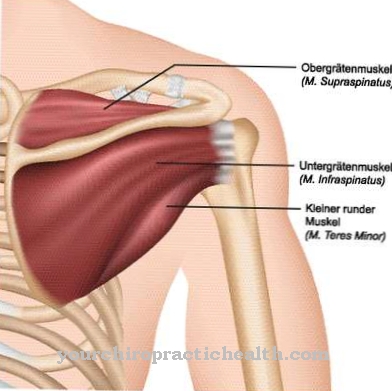
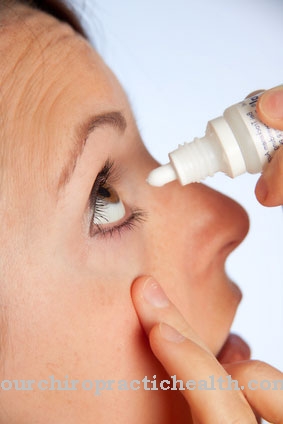
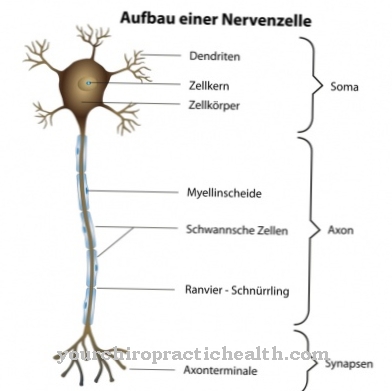

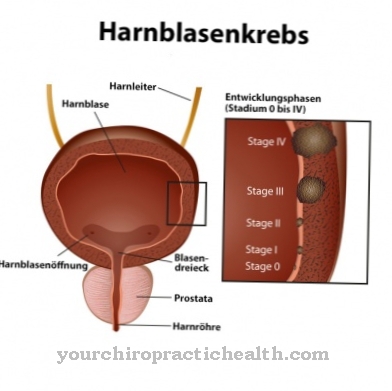
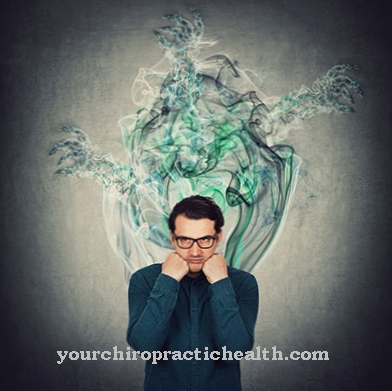

















.jpg)


